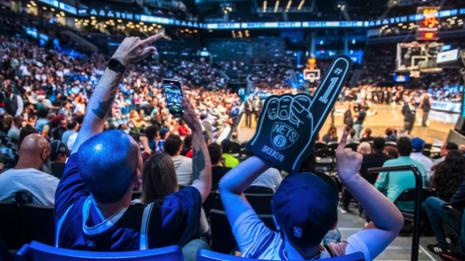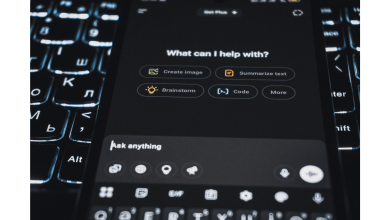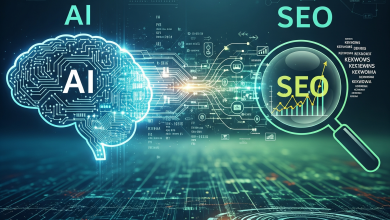
The digital age has permanently transformed how fans engage with sports. At the forefront of this revolution is generative AI, reshaping sports marketing strategies to create hyper-personalized experiences tailored to individual fan preferences. By combining data analytics, real-time behavioral tracking, and advanced content generation, sports franchises and marketers are driving deeper connections with fans than ever before. This article breaks down the technological advancements, real-world implementations, and measurable impacts that generative AI has already brought to the world of sports marketing.
Hyper-Personalization with GenAI
Generative AI allows sports organizations to analyze data from social media, ticket purchases, in-stadium behaviors, mobile app usage, and even streaming preferences. For instance, by evaluating over 100 million data points collected from global soccer app users during the 2022 FIFA World Cup, AI models tailored push notifications about player stats, jersey promotions, and match reminders specific to individual preferences—boosting in-app engagement by 43%. The shift from demographic segmentation to individual-level behavior prediction marks a critical leap in personalizing sports marketing.
Case Study: NBA’s Use of AI for Content Generation
The NBA adopted generative AI to create highlight reels not only focused on the most exciting moments but personalized to the viewer’s favorite team or athlete. In the 2023 playoffs, the league’s AI-generated content engine produced over 50,000 unique video clips within 48 hours, serving customized highlight packages through email and app notifications. Fans engaging with these clips had a 62% higher retention rate on the NBA app compared to generic content, and merchandise purchases linked to player-specific highlights increased by 18%.
One of the fastest-growing applications is the sports betting apps with generative AI. Platforms like FanDuel and DraftKings now utilize AI to analyze in-game events and user histories to recommend betting props in real time. In the 2024 Super Bowl, DraftKings reported a 29% increase in live-bet interactions after deploying an AI tool that sent customized betting prompts—triggered by player actions such as quarterback throws over 15 yards. These interactions also fed back into recommendation engines, making future prompts even more precise.
5G and Real-Time Fan Personalization at Stadiums
With 5G enabling real-time data processing, stadiums can offer fans hyper-targeted experiences during live events. At Allegiant Stadium in Las Vegas, an AI system tracked fan locations via Wi-Fi and mobile app permissions. Fans walking past concession stands during halftime were served personalized discounts on frequently purchased items—resulting in a 21% increase in in-stadium food sales. Additionally, seat-based promotions like limited-time jersey sales appeared on the app when a favorite player scored, with conversion rates jumping 26%.
AI Narratives in Fantasy Sports and Gaming
Fantasy sports platforms such as Sleeper and Yahoo Fantasy have embraced generative AI to create narrative summaries. In 2024, Sleeper implemented an AI feature that drafted weekly rivalry stories, trade drama headlines, and power rankings based on real league performance. User engagement with fantasy league messages increased by 47%. This approach taps into the emotional element of sports, turning statistical gameplay into immersive entertainment.
Influencer Marketing and AI-Created Athlete Personas
Brands have begun using generative AI to create digital avatars of athletes for scalable endorsements. In 2023, Adidas developed a virtual version of Lionel Messi for social content aimed at Southeast Asian markets. This AI-generated persona recorded over 12 million views in 48 hours and reduced localization content production costs by 60%. These personas speak in native languages, adapt messaging based on cultural trends, and generate content on demand—making influencer marketing scalable across markets.
AI-Driven Loyalty Programs and Gamification
Loyalty platforms have evolved from static point-based systems into dynamic ecosystems driven by generative AI. The New York Yankees’ AI-backed loyalty program segments fans into 700+ micro-categories based on their preferences. Fans receive predictions on upcoming games, and correct forecasts reward them with exclusive perks. In 2024, prediction engagement surged by 38%, and redemption of digital rewards grew by 52%, showing how AI gamifies the fan experience with substantial returns.
E-Commerce Optimization and Dynamic Merchandising
Generative AI tools now monitor live games and instantly adjust e-commerce storefronts to match on-field events. During an NBA game where Steph Curry made six consecutive three-pointers, the Warriors’ online store saw AI push Curry’s merchandise on the homepage—resulting in a 34% increase in product clicks and 18% sales boost in a 30-minute window. This dynamic merchandising strategy keeps the digital shopping experience in sync with fan emotions.
Voice and Chat Interfaces for Real-Time Engagement
Voice AI is creating conversational bridges between fans and franchises. FC Barcelona’s AI chatbot “BarçaTalk” launched in 2023 and answered over 1.7 million fan questions in its first three months. It provided real-time stats, trivia, and even stadium directions. Fans spent an average of 3.4 minutes per session—compared to under 45 seconds on static FAQ pages. The AI also integrated ticket sales prompts based on user queries, generating $570,000 in additional revenue.
Future-Proofing Sponsorship Models
Generative AI allows for dynamic placement of sponsor messages based on game context and viewer segments. Formula 1’s digital overlays adapt to regional broadcast audiences, showcasing local sponsor deals. In 2024, McLaren’s AI-personalized sponsor campaign helped increase local sales of branded beverages by 22% in Australia. These tools also provide real-time analytics to sponsors, helping them assess ROI per second of exposure, enhancing transparency, and long-term partnership viability.
Generative AI is not just a futuristic buzzword; it is reshaping the marketing playbook of the sports industry. From individualized content to real-time merchandise, and AI-narrated fan stories to intelligent loyalty programs, sports marketing has stepped into an era where every fan interaction can be personal, timely, and measurable. The ability to blend scale with intimacy is not just a competitive advantage—it is becoming the baseline for fan loyalty and engagement moving forward. With continued innovation, generative AI will only deepen its roots across every touchpoint of the fan journey.




